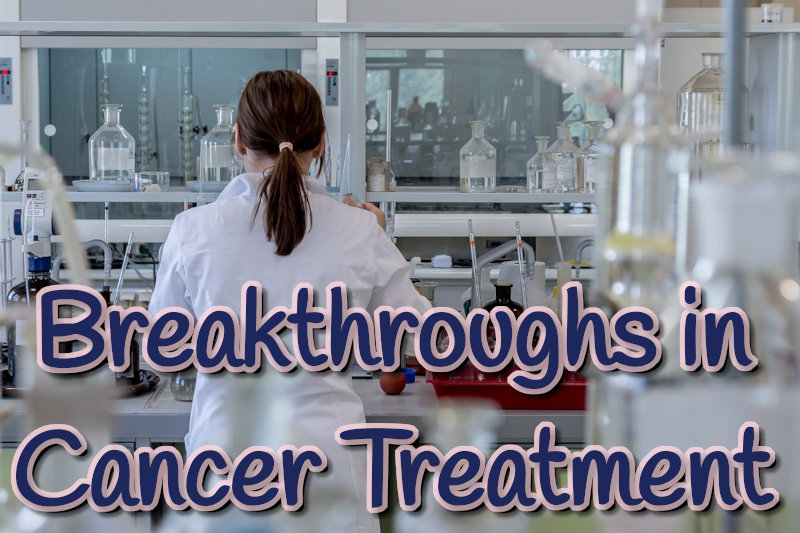Breakthroughs in Cancer Treatment

October 5th, 2024 | Cancer
What’s New in 2024
The cancer treatment landscape is one that is fast-paced, with new drugs getting approved seemingly every day. But what new advancements and technologies are on the forefront? Let’s discuss some of the most recent breakthroughs that are positioned to revolutionize cancer treatment.
Gene editing technologies
Gene editing technologies are one of the most exciting advancements in recent years, with the ability to transform multiple disease states, including cancer. When it comes to oncology, gene therapies can target and change specific genes within the cancer cells to prevent them from continuing to grow and develop. Gene therapies can also alter the body’s immune system so that it more easily recognizes and fights off cancer cells.
One such example is CRISPR-Cas9, a gene editing tool, functions like a pair of scissors at the gene. This technology cuts out specific sequences within the DNA of a cell, which can delete a dysfunctional part of the gene or insert a new, healthy gene in its place (1).
AI in cancer detection
Let’s face it – we’ve all heard about the seemingly unmatched potential of AI across several industries, including the world of oncology. Artificial intelligence may actually enhance our ability to detect and treat cancer, with several use cases currently in the works.
One such instance of AI in cancer involves cancer diagnosis. Typically, diagnosing cancer involves obtaining a tissue sample that a pathologist then studies to conclude the presence or absence of cancer. As you can imagine, this process can be incredibly time-consuming and labor-intensive, sometimes involving as many as five specialists.
AI has the ability to add a set of eyes on these biopsies, offering its own interpretation of the images. These AI models would be trained on thousands of images, supplemented by patients’ medical records, to create a massive database incomparable to any one human’s personal knowledge. Using this data, AI has the ability to more accurately identify cancer in its early stages (2).
Personalized medicine
Personalized medicine provides an opportunity for targeted treatments that are unique to the genetics of a specific tumor. Doctors do this through genomic sequencing, which is a process in which oncologists identify the specific mutations unique to that person’s cancer. Through understanding the mutations implicated in an individual’s cancer, healthcare providers can provide more targeted therapies that can improve cancer outcomes.
References
Recent Posts
- Welcoming Longer Days: A Spring Adventure for Little Ones
- Combating Nausea with Aromatherapy – Essential Oils for Chemotherapy Patients
- Finding Your Calm: Relaxation Techniques for New Parents
- Sip Your Way to Relief: Hydration & Bland Drinks for Chemotherapy Nausea
- Surviving Valentine’s Day: A Gentle Guide for the Morning Sickness Warrior
Categories
- All-Natural (4)
- Blog (47)
- Cancer (80)
- Diet (15)
- Holidays (27)
- Lifestyle (69)
- Motion Sickness (44)
- Nausea (107)
- New Mothers (43)
- Oncology Testimonials (3)
- Prebiotics (1)
- Preggie Products (11)
- Preggie Testimonial (24)
- Pregnancy (160)
- Queasy Products (7)
- Queasy Testimonial (17)